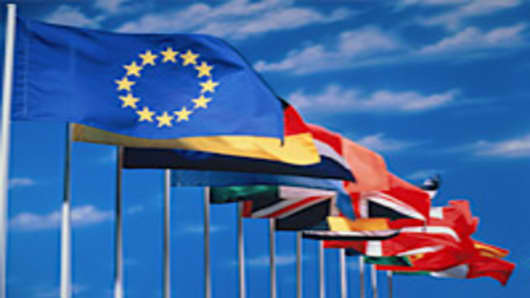Something very significant may be happening in Europe.
Hidden among an otherwise sea of red due to China fears, some markets rallied Thursday: Athens' ASE up 2.6 percent, Portugal's PS120 up 1.1 percent and Spain's IBEX up 0.76 percent.
More importantly, there's a growing bid under peripheral European debt. For all governments dubbed PIIGS, the extra that the market demands to hold their debt over benchmark German bunds is down—yet again.
When I call around Europe trying to find out why, I get one of two answers:
Answer One
It's internal. People are happier to hold Portuguese or Greek debt because something—and usually people are not specific—but they believe something is being discussed by the authorities behind closed doors.
There's a far greater sense of hope than I've heard before that a plan is being formulated to transfer wealth from rich to poor nations in order to lower the effective rates at which the PIIGS borrow—making their debt more affordable and so reducing the need for investor haircuts.
And in return, Germany will force the PIIGS to unequivocally agree to discipline their economies.
Some talk of an announcement next week after a low-key election Sunday in Portugal. Others say that's way too soon to negotiate a deal capable of being a true game changer.
Answer Two
The second reason people give me for the optimism is it's external to Europe. Amid reports China is ready to buy $6 billion euros Spanish debt, that the market is beginning to realize Beijing may be serious in its support for the Euro and diversification into it.
In advance of this week's summit in Washington, President Hu's Vice Foreign Minister was quoted as saying China’s foreign exchange policy "is based on China's own developmental interests and needs, and is not in response to demands from another country."
More than fending off a revaluation of China's own exchange rate, it's argued Beijing no longer wish to rely uniquely on the US Dollar as the world's sole reserve currency, particularly at time when the greenback may be in long term structural decline. So it's buying Europe paper.
Think of it as a form of "vendor financing" to support the world's newest, economic "Euro" zone—much the same way Beijing stocked-up on US Treasuriesfor so many years.


